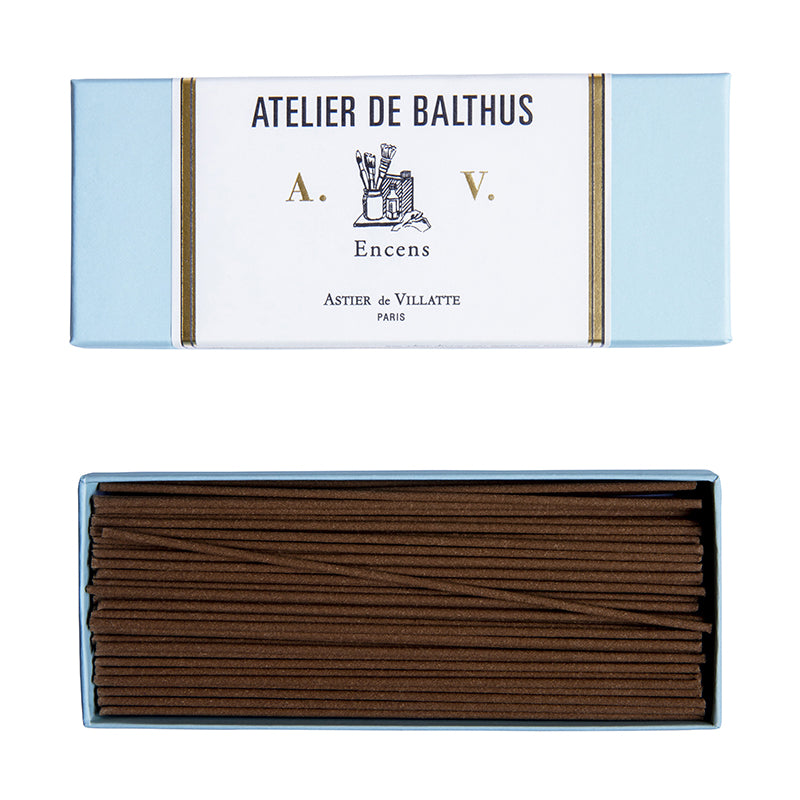
Atelier de Balthus - Incense Box (125 sticks)
In the painter’s studio, all covered in wood panelling, time seems suspended. Through the big bay window overlooking green altitude meadows, the Northern light pours her powdery rays all over brushes, palettes, tubes, paint pots, sketched canvasses and rags still wet with linseed oil. The air is fragrant with the heady smell of turpentine mixed with lovely wisps of smoke, honey, woods, tobacco and cedar wood.
Subtly perfumed, Astier de Villatte's incense immediately bring our favourite places home, leaving long scented traces in their wake.Its within the island of Awaji, due to its favourable climate, where one finds the best incense on our whole planet.
Passed from father to son, for over a thousand years, The Koh-shis or Masters of Aromas, continue using their traditional methods of fabrication. Only they can perfectly control the four steps of production: perfect dosage of exclusively natural ingredients, precious woods, herbs and plants, vegetable resins and perfume. The kneading of the paste, which is pressed and worked for lengthy periods of time, then laid out to rest for two weeks to fully absorb of the perfumes. The cutting of the paste into lengthy ribbons, rolled by hand, then left to dry in a West Wind for three days, before binding them in sheaves.
OLFACTIVE NOTES
Spanish turpentine, Texan cedar and Indonesian patchouli
ADDITIONAL INFO
Light the end of the stick with a match, blow out the flame and leave to smoke. Plant the stick in an incense burner or a bowl of sand. Do not use in a flammable environment. Do not leave burning without supervision. Keep out of reach of children and animals.
- Box of 125 sticks
- Burning time approx. 30 minutes each
- Made in Japan
- Dimensions: 6" x 2.5" x 0.75"
ABOUT THE BRAND
Designers of furniture and white ceramics Ivan Pericoli and Benoît founded their company, Astier de Villatte, in 1996 in association with friends and family. Successor to the parisian manufactures of the 18th century, satire de village is now the only major studio to keep the tradition of artisanal ceramic production in Paris alive. In 2000, they opened the boutique at 173 rue Saint Honoré, which also presented their other creations for the home: titanium cutlery, borosilicate glassware and above all the wonderful collection of traditionally printed notebooks.
In 2008 they decided to join forces with a big name from the perfume world and together begin creating luxury scented goods. Working with their associates Emilie Massed and Françoise Caron, the star pefumer at Takasago (a Japanese fragrance company) Astier de Villatte's range of scented products was born.
Choose options


